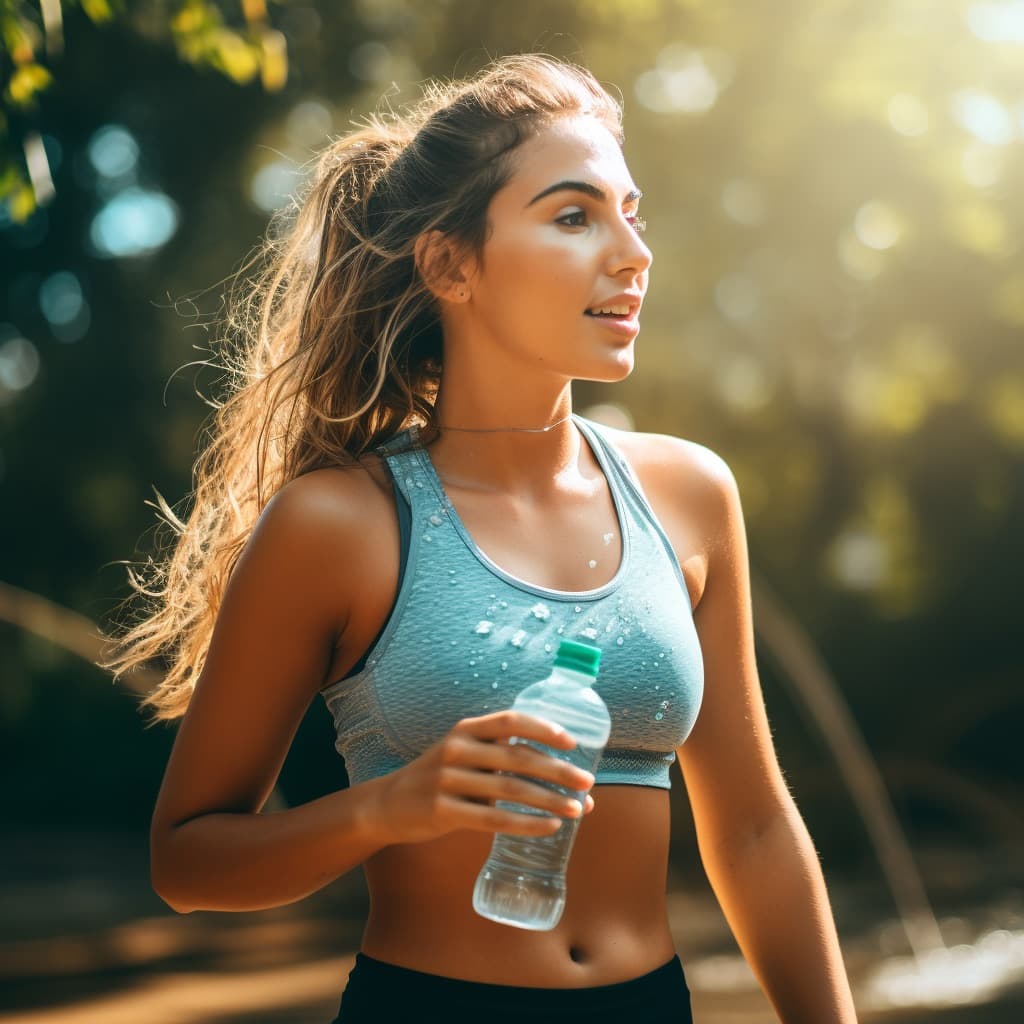When it comes to exercise, we often focus on factors like intensity, duration, and proper form. However, one crucial aspect that is sometimes overlooked is hydration. Staying properly hydrated during physical activity is vital for overall performance and well-being. In this article, we will explore the importance of drinking water during exercise and uncover the reasons why hydration should be a top priority.
The Role of Water in the Body
Water is an essential component of our bodies, constituting a significant percentage of our overall weight. It plays a vital role in various bodily functions, including temperature regulation, nutrient transportation, joint lubrication, and waste removal. Without adequate water intake, our bodies cannot function optimally, and this becomes especially important during exercise.
Understanding Exercise-Related Dehydration
Causes of Dehydration During Exercise
During exercise, our bodies lose water through sweat to regulate body temperature. Factors such as high-intensity workouts, hot weather, and prolonged exercise can significantly increase fluid loss. Additionally, inadequate fluid intake before and during exercise can contribute to dehydration.
Effects of Dehydration on Exercise Performance
Dehydration can have a significant impact on exercise performance. As our bodies lose water, blood volume decreases, leading to reduced oxygen and nutrient delivery to muscles. This can result in decreased endurance, increased fatigue, reduced strength, and impaired cognitive function. In extreme cases, severe dehydration can even lead to heatstroke, a potentially life-threatening condition.
The Importance of Hydration During Exercise
Benefits of Proper Hydration
Staying hydrated during exercise offers numerous benefits. Firstly, adequate hydration helps maintain optimal body temperature, preventing overheating. This allows us to perform at our best and reduces the risk of heat-related illnesses. Secondly, proper hydration supports cardiovascular function by ensuring adequate blood volume and circulation. This, in turn, helps deliver oxygen and nutrients to muscles, enhancing endurance and performance. Lastly, staying hydrated can help prevent muscle cramps, improve joint lubrication, and aid in post-exercise recovery.
Optimal Hydration Strategies
To maximize the benefits of hydration during exercise, it's essential to follow optimal strategies at different stages.
Pre-Exercise Hydration
Proper hydration should begin before exercise. Aim to drink water or other hydrating fluids at least one to two hours before your workout. This helps ensure that you start your activity in a well-hydrated state.
Hydration During Exercise
During exercise, it's crucial to maintain fluid balance by replenishing lost fluids. The exact amount of water needed varies depending on factors such as exercise intensity, duration, and sweat rate. As a general guideline, drink 7 to 10 ounces of water every 10 to 20 minutes during exercise. For longer or more intense workouts, consider sports drinks that provide electrolytes to replenish what is lost through sweat.
Post-Exercise Hydration
After exercise, continue hydrating to aid in the recovery process. Replace any fluids lost during the workout by drinking water or a combination of water and a balanced post-workout beverage.
Signs of Dehydration and Hyponatremia
Recognizing Dehydration Symptoms
It's crucial to be aware of the signs of dehydration during exercise. Some common indicators include increased thirst, dry mouth, fatigue, dizziness, dark-colored urine, and reduced urine output. Pay attention to these signals and take immediate steps to rehydrate if you experience any of them.
Understanding Hyponatremia
While dehydration is a concern during exercise, it's equally important to avoid overhydration, which can lead to a condition called hyponatremia. Hyponatremia occurs when the concentration of sodium in the blood becomes diluted due to excessive fluid intake. This condition can be dangerous, causingimbalances in electrolytes and potentially leading to symptoms such as nausea, headache, confusion, and even seizures. It is important to strike a balance between hydration and avoiding excessive fluid intake.
Factors Affecting Hydration Needs
Individual Variations
Hydration needs can vary from person to person. Factors such as body weight, sweat rate, fitness level, and individual metabolism can all influence how much water an individual requires during exercise. It is essential to listen to your body's cues and adjust your hydration strategies accordingly.
Environmental Considerations
Environmental conditions, such as temperature, humidity, and altitude, can also impact fluid needs during exercise. In hot and humid environments, sweat evaporation may be less effective, leading to increased fluid loss. When exercising at high altitudes, the body tends to lose more fluids due to increased respiratory water loss. It's important to take these factors into account and adjust your hydration approach accordingly.
Practical Tips for Staying Hydrated
To ensure proper hydration during exercise, here are some practical tips to keep in mind:
* Always carry a water bottle with you during workouts and drink from it regularly.
* Monitor your fluid intake and aim to drink before you feel thirsty.
* Consider the use of sports drinks or electrolyte-rich beverages for prolonged or intense exercise sessions.
* If exercising for an extended period, plan your route to include water fountains or restrooms where you can refill your water bottle.
* Pay attention to your urine color. A pale yellow color indicates good hydration, while darker urine may indicate dehydration.
* If you're unsure about your hydration levels, consult with a healthcare professional or a sports nutritionist who can provide personalized recommendations.
Misconceptions about Hydration
There are a few common misconceptions related to hydration during exercise that need to be addressed:
1. Myth: "Drink as much water as possible to stay hydrated."
* Fact: While it's essential to stay hydrated, overhydration can be harmful. Listen to your body's signals and drink an appropriate amount of water based on your individual needs.
2. Myth: "Thirst is not a reliable indicator of dehydration."
* Fact: Thirst is the body's natural mechanism to signal the need for fluid intake. While it's important not to rely solely on thirst, it should still be considered as a valuable cue to drink water.
3. Myth: "Caffeinated beverages like coffee or tea dehydrate the body."
* Fact: While caffeine is a mild diuretic, moderate consumption of caffeinated beverages does not cause significant dehydration. They can still contribute to your overall fluid intake.
It's important to debunk these myths and base your hydration practices on scientific evidence and individual needs.
Conclusion
Proper hydration during exercise is of utmost importance for optimizing performance and ensuring overall well-being. By understanding the role of water in the body, the causes and effects of dehydration, and implementing optimal hydration strategies, you can support your fitness goals and maintain peak performance. Remember to listen to your body, stay hydrated before, during, and after exercise, and consult with professionals if needed.
FAQs
How much water should I drink during exercise? The amount of water you need to drink during exercise varies depending on several factors such as exercise intensity, duration, and environmental conditions. As a general guideline, aim for about 7-10 ounces of water every 10-20 minutes during your workout.
Can I drink something other than water during exercise? Yes, besides water, you can also hydrate with sports drinks that contain electrolytes. These drinks help replenish both fluids and essential minerals lost during sweating.
Is it possible to overhydrate during exercise? Yes, overhydration, also known as hyponatremia, can occur if you consume excessive fluids without adequate electrolyte replenishment. It's important to strike a balance and listen to your body's hydration needs.
Should I drink water even if I don't feel thirsty? Yes, it's recommended to drink water even before you feel thirsty. Thirst is a late indicator of dehydration, so staying ahead of thirst can help maintain optimal hydration levels.
How can I monitor my hydration status? One way to monitor your hydration is by checking the color of your urine. Clear or pale yellow urine generally indicates good hydration, while darker urine suggests dehydration.
Remember, staying hydrated is essential for maximizing your exercise performance and overall well-being. By understanding the importance of hydration and implementing practical strategies, you can ensure that you're supporting your body's needs during physical activity.




